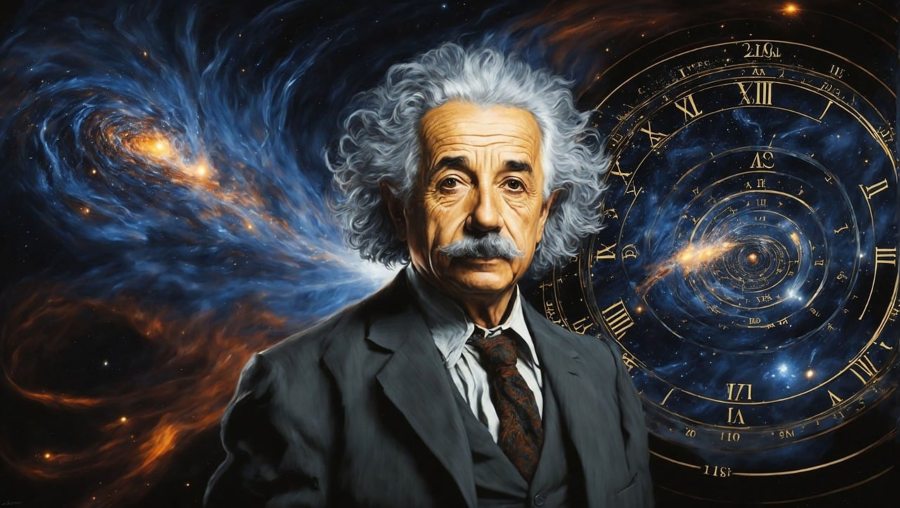The concept of time has intrigued humanity for centuries, but it was Albert Einstein’s Theory of Special Relativity that brought a revolutionary understanding of how time behaves in the presence of speed. At the heart of this theory lies the notion of time dilation, a phenomenon that challenges our intuitive perception of time as an absolute and unchanging entity. This article explores the intriguing question: Does time slow down the faster you go? By delving into the principles of special relativity, examining experimental evidence, and discussing the practical implications and philosophical quandaries it raises, we aim to unravel the mysteries of time dilation and its profound implications for our understanding of the universe.
Does Time Slow Down The Faster You Go?
Yes, according to Albert Einstein’s Theory of Special Relativity, time slows down as you move faster relative to someone at rest. This phenomenon, known as time dilation, is a fundamental aspect of the theory. As an object’s speed approaches the speed of light, time dilation becomes more significant. It has been experimentally confirmed and has practical implications for space travel and modern technology.
Time Dilation: An Explanation
Time dilation is a fascinating consequence of Albert Einstein’s Theory of Special Relativity. At its core, this concept suggests that the passage of time is not an absolute constant, but rather it can vary depending on one’s relative motion to other objects. In simpler terms, time can appear to move at different rates for observers in different states of motion. This phenomenon challenges our intuitive understanding of time as an immutable entity and has profound implications for our understanding of the universe.
The theory of time dilation is primarily based on two key postulates of special relativity. The first postulate asserts that the laws of physics are the same for all observers moving at constant velocities, which includes the speed of light. The second postulate states that the speed of light in a vacuum is always the same, regardless of the relative motion of the observer and the light source. These postulates may seem counterintuitive, but they have been extensively validated by experiments.
One of the fundamental implications of these postulates is that as an object’s velocity increases, its experienced passage of time slows down relative to a stationary observer. This means that someone traveling at a significant fraction of the speed of light will age more slowly than their stationary counterpart. While this effect is not noticeable at everyday speeds, it becomes increasingly significant as an object approaches the speed of light.
Time dilation is not just a theoretical concept; it has been experimentally verified. The Hafele-Keating experiment, for example, involved atomic clocks placed on commercial airliners traveling east and west. The experiment demonstrated that the moving clocks indeed measured time differently compared to stationary clocks on Earth, confirming the predictions of special relativity. Similar effects are also observed in the operation of the Global Positioning System (GPS), which relies on precise timing and would be inaccurate without accounting for time dilation.
When Does Time Dilation Occur?
Time dilation occurs when there is a significant difference in the relative velocities of two observers or reference frames. It becomes more noticeable as the speed of one observer approaches a significant fraction of the speed of light (approximately 299,792,458 meters per second). Here are some key scenarios and conditions when time dilation occurs:
- High Relative Speeds: Time dilation becomes significant when two objects are moving relative to each other at speeds approaching the speed of light. The faster one object moves relative to the other, the more pronounced the time dilation effect becomes.
- Space Travel: Astronauts traveling at high speeds in space experience time dilation. For example, a spacecraft traveling at a substantial fraction of the speed of light will experience time passing more slowly relative to observers on Earth. This effect must be considered for precise space mission planning.
- Particle Accelerators: Particles accelerated to near-light speeds in particle accelerators, like the Large Hadron Collider (LHC), experience time dilation. This is essential for accurately measuring particle lifetimes and interactions during experiments.
- Cosmic Phenomena: Objects such as high-speed cosmic rays, fast-moving stars, or galaxies that are receding from us at speeds approaching the speed of light will exhibit time dilation effects. Observations of these objects must account for time dilation to understand their behavior accurately.
- Everyday Life: Although time dilation is negligible at everyday speeds, it still exists. For example, a fast-moving jet plane or a satellite in orbit experiences very slight time dilation compared to an observer on Earth, but this difference is too small to be practically noticeable.
- Relative Velocity Matters: Time dilation depends on the relative velocity between observers or objects. As the relative speed increases, so does the magnitude of time dilation. It is a continuous effect that becomes significant only at relativistic speeds.
How Does Time Dilation Impact Us?
Time dilation, a consequence of Einstein’s Theory of Special Relativity, has several significant impacts on our understanding of the universe and various practical applications. Here’s how time dilation affects us:
Space Exploration:
Astronauts traveling at high speeds experience time dilation. This means that their clocks run more slowly than clocks on Earth. For long-duration space missions, this effect becomes noticeable, and it must be accounted for in mission planning. It affects navigation, communication, and synchronization of spacecraft systems.
GPS Systems:
The Global Positioning System (GPS) relies on precise timing to determine locations. The satellites in the GPS network orbit Earth at high speeds, and their clocks run at a slightly different rate than those on Earth due to time dilation. Without correcting for this effect, GPS accuracy would degrade by several meters per day.
Particle Physics:
Particle accelerators, like the Large Hadron Collider (LHC), accelerate particles to near-light speeds. Time dilation is crucial for accurately measuring particle lifetimes and understanding the behavior of subatomic particles in high-energy collisions.
High-Speed Technology:
In modern technology, especially in semiconductor manufacturing and telecommunications, the behavior of particles and signals can be influenced by relativistic effects, including time dilation. Precise timing is essential for these technologies.
Satellite Communication:
Communication with satellites in geostationary orbits or at high relative speeds relies on precise synchronization of signals. Time dilation must be considered to ensure accurate communication and data transfer.
Cosmic Phenomena:
When studying high-speed cosmic phenomena, such as fast-moving stars or galaxies receding from us at significant fractions of the speed of light, time dilation affects our observations and understanding of these objects’ properties and behavior.
Philosophical Implications:
Time dilation challenges our philosophical understanding of time as an absolute and universal concept. It raises questions about the nature of time and the relativity of temporal experience, leading to deeper philosophical discussions about the fabric of the universe.
Conclusion
In conclusion, time dilation, a profound consequence of Albert Einstein’s Theory of Special Relativity, challenges our conventional understanding of time as an absolute and constant entity. It impacts us in various ways, from influencing space exploration and GPS accuracy to playing a vital role in particle physics and high-speed technologies. Beyond its practical applications, time dilation raises intriguing philosophical questions about the nature of time itself. As we continue to explore the universe and develop advanced technologies, our recognition of time’s relative nature reshapes our perspective on the fundamental aspects of reality.
FAQs
1. What Is Time Dilation?
Time dilation is a phenomenon predicted by Einstein’s Theory of Special Relativity, where time passes at different rates for observers moving at different speeds.
2. Does Time Dilation Really Happen?
Yes, time dilation has been experimentally confirmed through various experiments, including the Hafele-Keating experiment and the operation of the Global Positioning System (GPS).
3. Does Time Dilation Affect Our Daily Lives?
Time dilation is usually negligible at everyday speeds, but it becomes significant for astronauts, high-speed technology, and space missions where precise timekeeping is essential.
4. Can Time Dilation Make Time Travel Possible?
Time dilation doesn’t enable time travel as portrayed in science fiction, but it does highlight the relativity of time and the possibility of experiencing time differently in different reference frames.
5. What Are The Philosophical Implications Of Time Dilation?
Time dilation challenges our understanding of time as an absolute concept, sparking philosophical debates about the nature of time and its relativity in different contexts.










